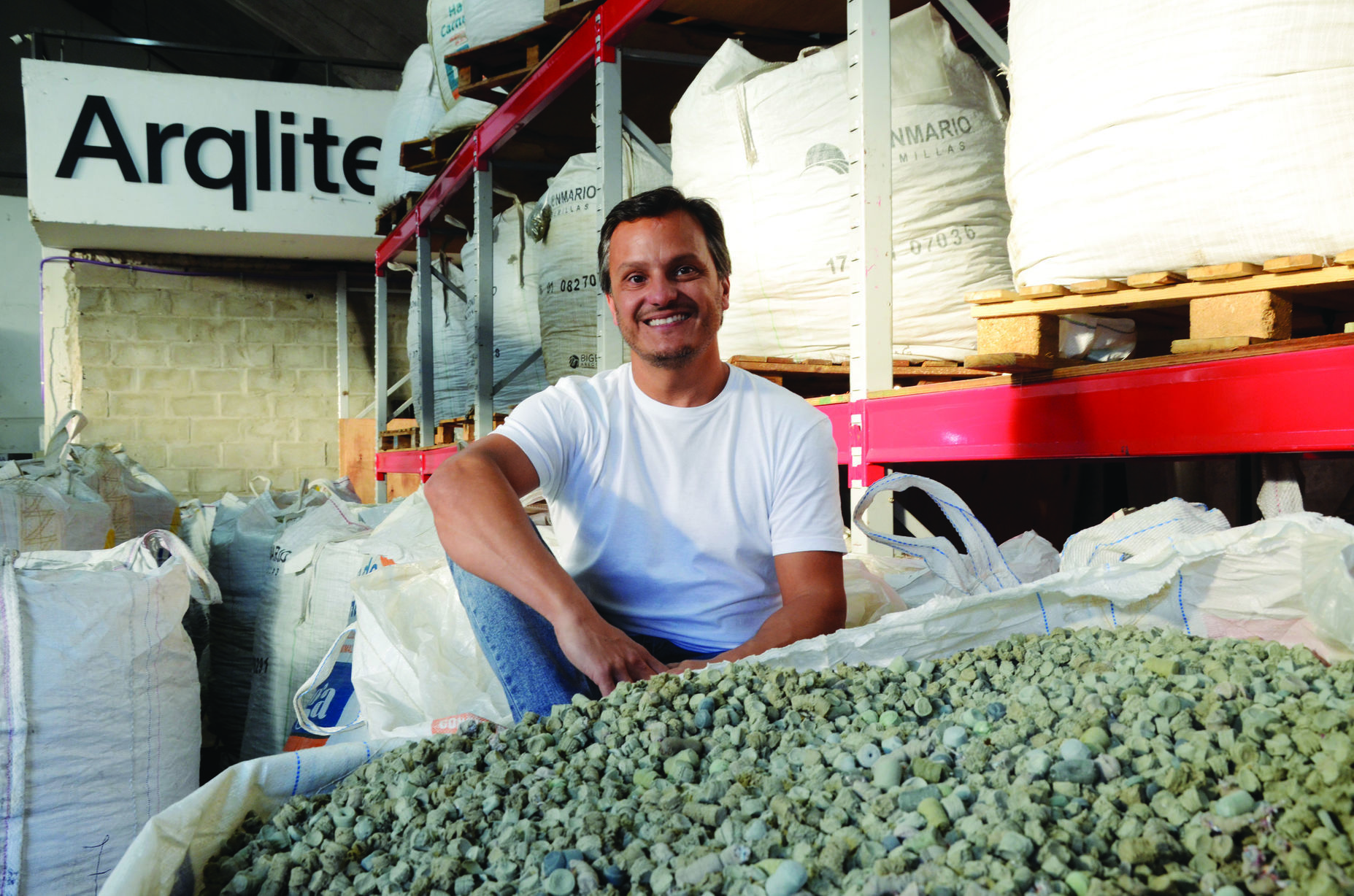





Keep this story going! Share below!
This company creates value by generating a triple positive impact -social, economic and environmental- product, ¨Arqlite Smart Gravel¨, that is made from 100% recycled plastic waste.
This is the first mass consumption recycled plastic material for the construction industry. It can be used for non-structural concrete and also in the installation of drainage beds for construction and landscaping.
The innovation presents a unique process, capable of transforming all types of plastics at the same time and producing a new product, "Arqlite Smart Gravel", under a circular economy scheme.
This product can be used in the construction industry, replacing the stones of mineral origin. The product has a thermal insulation capacity ten times higher and three times lighter than regular stone. It also improves the acoustic insulation. It also works very well for landscaping and home gardening projects, since it facilitates water drainage, helping to maintain healthy roots and preserving the vegetation.

Smart Gravel
"The problem are not the plastics, the problem is the use we make of them" says company CEO, Sebastian Sajoux.
Under that premise, Sebastian started to develope this technology for any type of plastic waste recycling. His commitment was not just recycling them, but developing a new product that can be massively sell at a reasonable price. That is how he developed Arquilite's product, under a circular economy philosophy. And he has succeeded in doing that.
Currently, only 9% of the world's plastic is recycled. By 2050, it is estimated that there will be more waste plastics than fish in the ocean and more than 12 million tons of this waste. Faced with this scenario, Arqlite proposal is a solution to this problem, mainly because the innovation can work with any type of plastics, including laminated, aluminized and ink-loaded.
It differs from existing solutions because it is low cost, can be replicated anywhere, and the process is capable of mixing all types of plastics.
Today most waste plastic recyclers require the separation of plastics by category in order to process them. Furthermore most plastics are not recyclable with an environmental and economic sense. This innovation found the solution for all those problems.
Arqlite competes with natural raw material for the construction industry: stone. The beauty is that it works under a circular economy philosophy, using waste to generate a new product that works well against its competitor. The idea is based on the fact that there is a practically unlimited market for this product, it is replicable and solves a social and environmental problem.
The smart gravel price is competitive with the commonly used mineral gravel. The fact that its manufacture involves much less logistics and that it is possible to install anywhere regardless of its geography, makes it much more accessible to places that are not very well connected. These capabilites reduces expenses and carbon emissions in comparison to stone transport logistics.
The company has not yet reached breakeaven, but they are building a new plant in California, United States, that according to their economic forecasts it will stabilize the equation as soon operations starts in 2022.
In the social dimension it impacts by generating decent employment and reducing human efforts in the construction industry, since this is a lighter material. On a wider view, it reduces the social problem of plastic waste dumping.
In the environmental dimension it impacts by reducing the impact of plastic waste. In a wider view, it reduces the mining exploitation, since the product is a product replacement of natural stone for the construction industry.
Get stories of positive business innovations from around the world delivered right to your inbox.
Sebastian Sajoux, CEO - Marketing & Environmental Expert


Arqlite aims to solve the problem of plastic waste contamination.
Their proprietary technology is capable of upcycling the up-to-now unrecyclable plastics that otherwise end in dumps, landfills, incinerators or even worse, water courses.